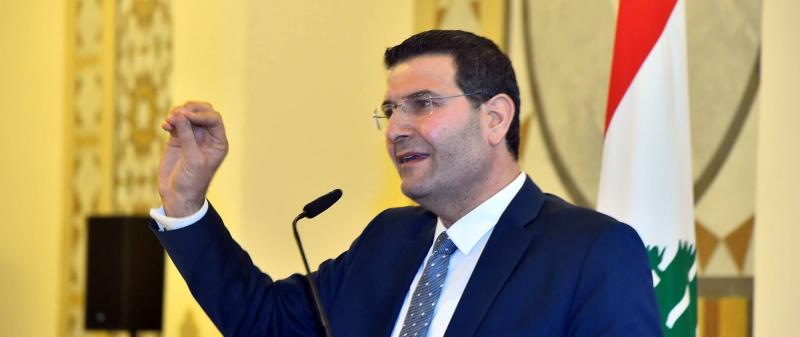Minister of Agriculture in the caretaker government, Abbas Al-Haj Hassan, announced that his visit to Egypt was made to remove some obstacles related to exporting to Egypt, stating that matters are being facilitated and progressing towards resolution. He mentioned that there will be special considerations for Lebanese products compared to other exports to Egypt. Additionally, he led a large ministerial and investment delegation to observe advanced fish farming techniques in Egypt, as Lebanon plans to launch a fish farming initiative in mid-June under the patronage of Prime Minister Najib Mikati to enhance the marine and river fish sector in Lebanon.
He pointed out that there are 45,000 families working in the fish sector who have been neglected for a long time. A survey conducted with FAO and Turkish entities confirmed the presence of 400 types of fish in Lebanese waters, indicating significant commercial potential. He emphasized that Lebanon imports 85% of its food and aims to reach self-sufficiency within two years through marine and river fish farming, while opening doors for private sector investments. A call will also be extended to several regional and international ministers to present the plan to the private sector, aiming to develop the fishing industry as a critical part of the national economy.
Regarding his visit to the "Egyptian Food Bank," he stated that it is a highly successful Egyptian initiative, providing food for 20 million needy people. He invited them to visit Beirut, highlighting the promising civil sector in Lebanon with institutions focusing on food security and safety.
On the issue of contamination of certain fruits, particularly strawberries, he explained that media amplification about strawberries being carcinogenic was unwarranted. Representative samples showed high quality, but there are issues with increased pesticide use, either illegally or beyond permissible limits. Collaborating with the Chamber of Industry and Trade, the Ministry is ensuring that exported products are free of residues.
He refuted claims that all imported strawberries are carcinogenic, stating that legitimate goods passing through official borders undergo testing, while smuggled goods pose significant threats and should be subjected to severe penalties.
In response to questions about spoiled meat sold in some shops, he noted that the Ministry of Agriculture plays a central role in testing the safety of imported products, but the responsibility extends to the Ministry of Economy, requiring collaborative efforts for optimal food safety. If spoiled meats are detected, strict penalties should be enforced.
Additionally, he explained that he is working with the Minister of Labor to organize Syrian labor in the agricultural sector amid current instability. A clear and precise mechanism will be developed in partnership with the Ministry of Labor and the International Labor Organization to relieve the Lebanese citizen and the national economy.
On the topic of Syrian refugees returning to Syria, he indicated that this issue is being studied at a high level, with plans to form a committee through Prime Minister Najib Mikati to negotiate as a unified Lebanese entity.
After meeting with the World Food Program Director in Lebanon, Abdullah Al-Wardat, he acknowledged Lebanon's need for assistance post-Israeli hostilities. The Ministry has established committees in partnership with the southern council to assess damages, with the agricultural sector prioritized for recovery initiatives.
Regarding the recent ministry survey revealing significant losses, he confirmed that the Ministry has a seasonal perspective and multi-year outlooks. He expressed resilience in the face of adversities, insisting that the state will support citizens, especially in the south, alongside international allies.
On the challenges faced by beekeepers in the south, he noted the promising sector and efforts to open European markets for Lebanese honey, while addressing issues of theft impacting beekeepers. A national conference for beekeepers is planned, and collaboration among Arab beekeeping sectors is underway.
He stressed the need for strict enforcement against illegal logging, acknowledging that although hundreds of violations have been documented, penalties were insufficient as deterrents. The ministry is coordinating with military and security forces to combat this issue and promote national preservation initiatives.
Regarding wheat cultivation, the minister emphasized the target of localizing this crop, with promising developments expected this year and next. Collaborations with local trade chambers and the army for planting initiatives aim to secure enough wheat for at least seven months of Lebanon's needs, thereby enhancing food security.
Finally, he denied rumors about imported watermelons containing viruses, stating that no watermelon is currently entering Lebanon, as all available stock is locally sourced from the south, and called for stringent actions against smugglers undermining Lebanon's agricultural sector and international credibility.




